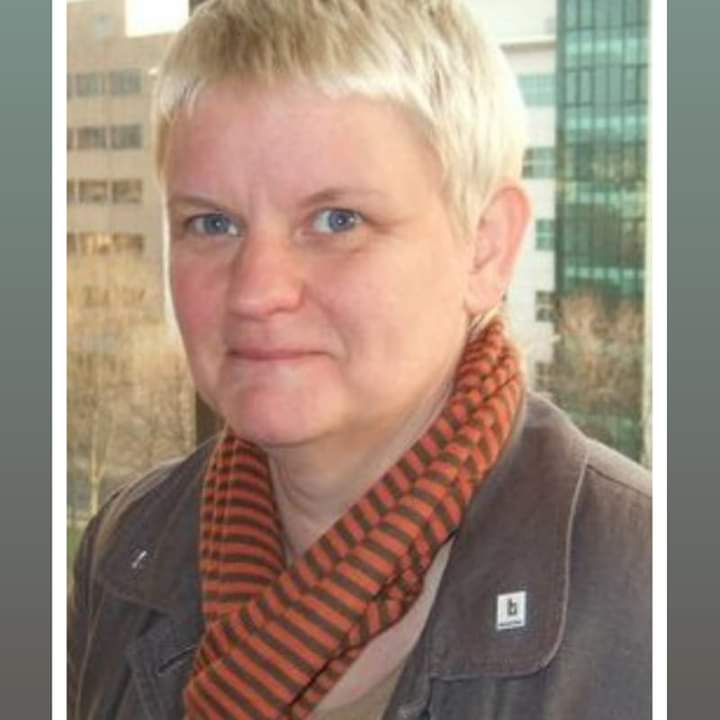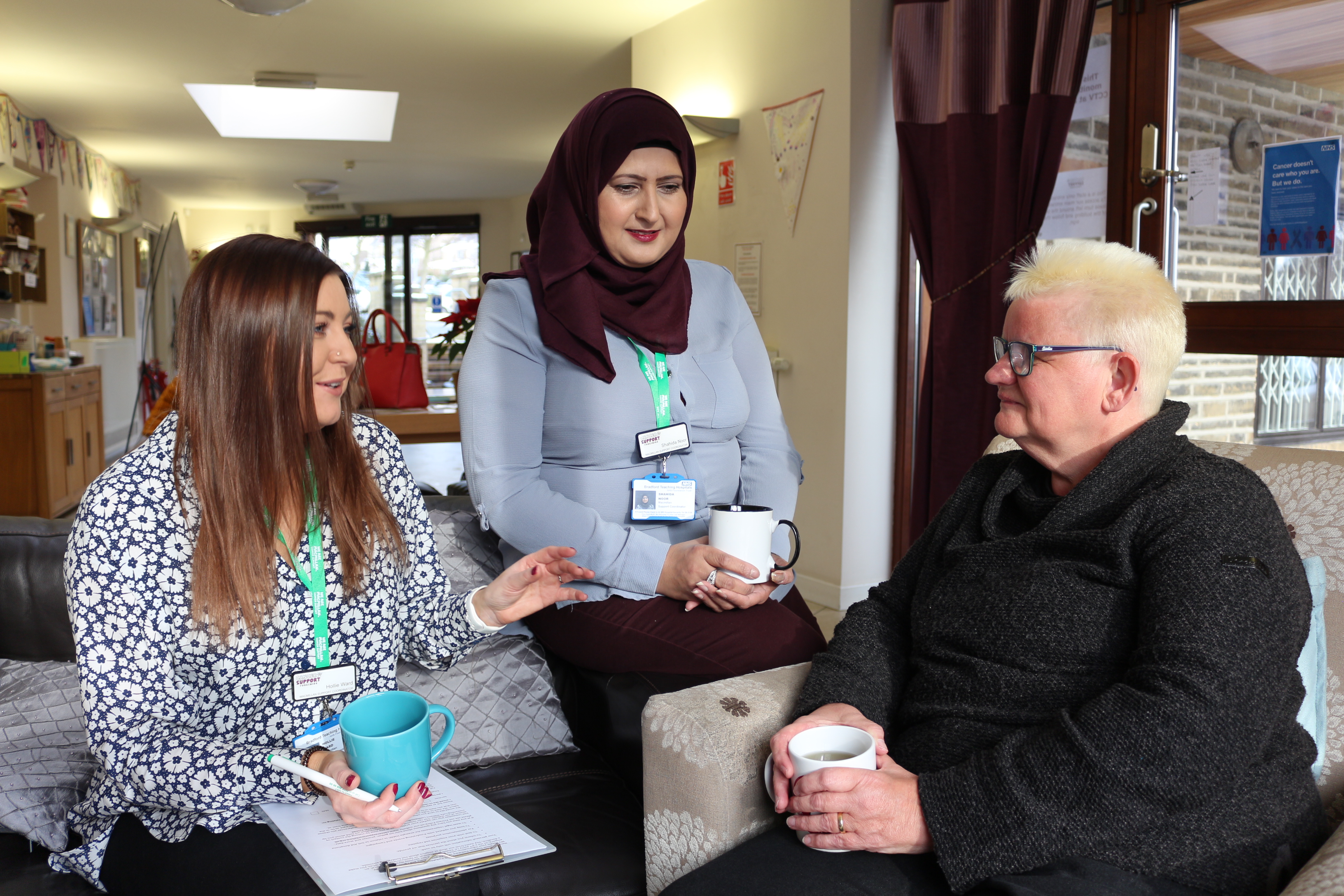Ovarian cancer isn’t a silent killer – it whispers, so you have to listen carefully, says Val. If it doesn’t feel right to you – get it checked out. That’s the message from Val, who was diagnosed with stage three ovarian cancer in late 2015.

“Most women know their own bodies, and it is too easy for us to let ourselves be fobbed off with what we know instinctively isn’t right,” said Val. “Ovarian cancer isn’t a silent killer – it whispers, so you have to listen very carefully and act when you feel something isn’t quite as it should be.”
The symptoms of ovarian cancer can be quite vague and are easily and often mistaken for something else, including the menopause and irritable bowel syndrome. Val was 51 when her symptoms started and believed she was entering the menopause. Her periods had stopped, she was experiencing night sweats and was putting on weight.
“It had become a bit of a joke with my team at work that before I could go anywhere, or start any meetings, I had to visit the loo. I needed to pee more and more frequently and urgently,” Val explained. “One morning, I couldn’t fasten my trousers properly but the next day I could, so I dismissed the thought that there was anything wrong.”
But in October 2015, a persistent cough left behind after a dose of flu prompted Val to visit her doctor. She began to experience pain just below her ribs and in her pelvic floor muscle, and put it down to the strain of coughing too much.
“By the time I came out of the surgery I'd had blood taken, including the CA125 blood test, which I found out from the nurse was a tumour marker for ovarian cancer. Two days later my GP was telling me that she thought that I had cancer.
“While others often struggle to get diagnosed, I was lucky that my GP referred me on my first visit.”
Val was subsequently diagnosed with stage 3, high grade ovarian cancer. The cancer had spread to both ovaries, both fallopian tubes, her uterus and one of her lymph nodes. Her omentum – a sheet of tissue which encases the liver, intestine and stomach – was also ‘peppered’ with small cancerous areas.
In February 2016 she underwent surgery to remove the cancer and she was told there was no residual disease. Val went on to have six lots of chemotherapy followedby a CT scan which also showed no sign of residual disease. Initially her follow-up blood tests and oncology check-ups were every five weeks. Now it’s every three months.
“Losing my hair from the chemo had a huge effect on me,” she said. “I thought it wouldn’t bother me, but when it started to fall out, it was still devastating. I guess it was reality hitting. You can no longer hide that you’re ill, it’s there for everyone to see.”
A supportive network of family and friends can make all the difference to recovery, says Val, who now spends much of her time working alongside various cancer charities and projects as a patient representative. This includes membership of the steering group for a personalised care project run in partnership by the Cancer Alliance, Cancer Support Yorkshire and Bradford Teaching Hospitals NHS Trust, with funding from Macmillan Cancer Support.
Val is pictured below, right, with Project Support Co-ordinators Hollie Ward, left, and Shahida Noor.

“A cancer diagnosis is traumatic. The treatment is brutal and the side effects can be long term. But my partner, my daughter and my friends and family have always been there for me. After treatment my partner and I had a civil partnership. It’s meant so much to me that we have been able to go through these challenging times together.”
While in hospital, Val met a woman who received her cancer diagnosis at the same time, was operated on by the same surgeon and received the same treatment. They kept in touch throughout chemotherapy, became very good friends and still see each other regularly.
“We have been able to to support each other in ways that only somebody who is going through it can,” said Val. I’m glad I now have the opportunity to make sure that services are made better for those women who may be diagnosed with ovarian cancer in the future.”
Another message that Val is keen to convey is the importance of women attending for their cervical smear, but at the same time appreciating that this won’t detect the presence of ovarian cancer.
Women should not be complacent in terms of other symptoms if they are given the all-clear on their smear test- and shouldn’t be afraid to push for a CA125 blood test and CT scan.
Said Val: “Cancer treatments have come a long way. I am very grateful to my surgeon, the chemotherapy nurses, my oncologist and my Macmillan nurse. Together they not only saved my life, but they have helped me to build a new life. Thank goodness we have the NHS.”
The symptoms to look out for are:
Feeling constantly bloated
A swollen tummy
Feeling full quickly
Needing to loo more frequently or urgently
Persistent indigestion or nausea
Pain during sex
A change in bowel habits
Back pain
Discomfort in tummy or pelvic area
Vaginal bleeding
Unexpected weight loss








